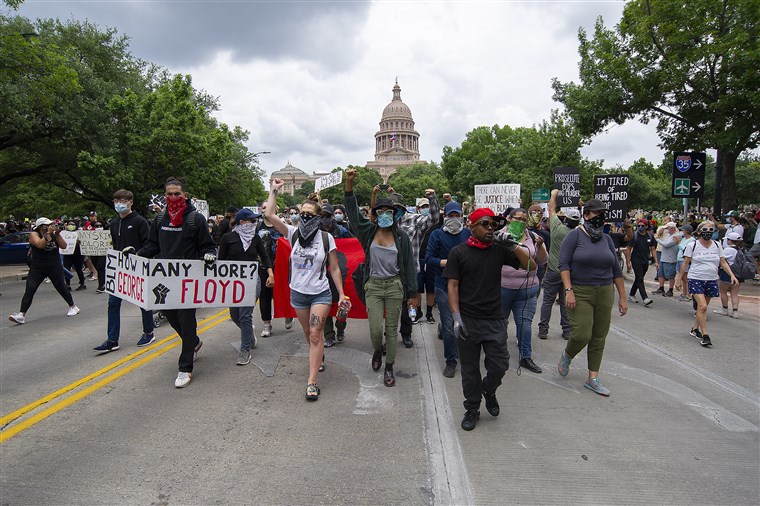Police Violence and the Latino Community

One frustration I have with our racial politics is how we rightfully talk about repression of Black communities but don’t connect it well with the Latino community, which is not only the nation’s largest minority community but also faces the exact same problems, including police repression. As Tucson reminds us:
It was another gruesome video of policing in America — a naked Latino man, his face covered by a mesh spit guard, his hands cuffed behind him as he lay dying face down on the ground at his grandmother’s house. He pleaded for water more than a dozen times, saying he could not breathe as police officers restrained his legs and torso.
This time, the scene was a southern Arizona city with a politically moderate image, a large Latino population and a Police Department said to be relatively progressive.
The victim was Carlos Ingram Lopez, a 27-year-old cooking school graduate who prepared every meal from scratch for his 2-year-old daughter and watched YouTube videos to learn how to comb her hair. His death, as he was having a mental health crisis that led to a call for help, was a jarring reminder that Latinos as well as African-Americans have a troubled history with the police, even though Latinos’ struggles do not get the same attention.
“The idea that Tucson police are progressive is something I’ve only heard from white folks,” said Alba Jaramillo, 40, a Tucson lawyer who obtained United States citizenship after living in the city as an undocumented immigrant into her 20s.
Still unanswered is why it took the police two months to release the video taken by officers’ body cameras when Mr. Lopez’s family had almost immediately asked to see it. Regina Romero, Tucson’s first Latina mayor, said on Thursday that there had been a “breakdown” inside the Police Department and that she had not learned of Mr. Lopez’s death until last week, when the police chief called her. Even then, she said, the city’s lawyer warned her and the City Council not to say anything publicly because it could be seen as an effort to influence the internal investigation, which was still underway.
There’s a number of important issues here. The police brutality here is as awful as what killed George Floyd or Breonna Taylor or so many others. But how do we respect the historical reality of Black suffering while also including the realities of other oppressed minorities. I don’t mean this as a gotcha or anything like that. I was involved in the crafting of a letter on the George Floyd killing to my administration and we really struggled with balancing the need to fight for Black lives while talking about other groups without using the watered down diversity rhetoric that has allowed campuses to hire Chinese or Indian-born faculty and claim that they have a diverse campus. Of course, it’s fine to hire those faculty, but it doesn’t really deal with the historical and institutional racism involved in the situation. Finally, led by the response of Black faculty, we just got rid of all references to anything not related to Black lives, even though Latinos make up a large and growing part of the Rhode Island population and suffer from the same police brutality. And that’s fine in the moment, I am not complaining. But we also have to figure out how to talk about justice and power rather than diversity while also respecting both historical legacies and a changing America. It’s not as easy as it sounds.


